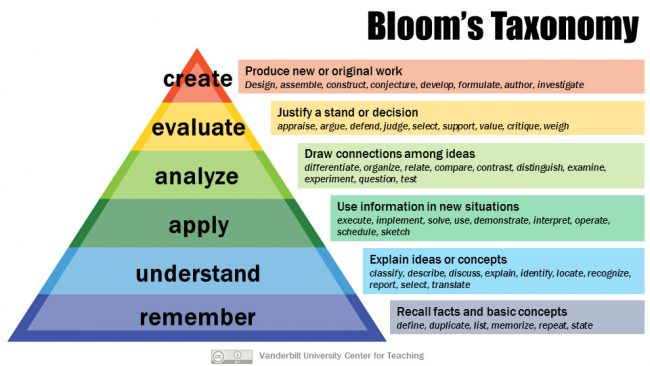Game Developer's Portfolio¶
Estimated time to read: 9 minutes
Creating and maintaining a portfolio is a crucial part in any game developer's job search and career.? Portfolios are especially challenging for programmers, since the work presented is not inherently visual, yet it must still effectively demonstrate the individual's prowess and skills in their discipline.? This course provides Game Programmers a formal opportunity to sum up their experience in the major and produce a portfolio worthy of presentation at the Senior Show.? In this course, students discuss and implement pertinent portfolio materials for programmers, such as websites, repositories and demo reels.? Students will have an opportunity to spearhead an entirely solo project to add as a centerpiece to their materials. Source
Requirements¶
- 90 Credits
Student-centered Learning Outcomes¶
Upon completion of the Game Developer's Portfolio course, students should be able to:
Objective Outcomes¶
- Demonstrate Proficiency in Programming Languages:
- Showcase competence in relevant programming languages commonly used in game development.
- Implement and explain code snippets that highlight problem-solving skills and efficiency.
- Develop an Individual Project:
- Spearhead a solo game development project to showcase the ability to conceive, plan, and execute a complete game;
- Demonstrate a deep understanding of programming concepts through the development of a unique and challenging project.
- Create a Professional Portfolio Website:
- Design and develop a visually appealing and user-friendly portfolio website to showcase programming projects.
- Utilize web development tools and frameworks to enhance the presentation of coding projects.
- Build a Source Code Repository:
- Establish and maintain a version-controlled repository (e.g., GitHub) containing well-documented code samples.
- Demonstrate proficiency in using version control tools and collaborative development practices.
- Develop a Demo Reel:
- Create a compelling demo reel that effectively communicates programming skills and contributions to game projects.
- Edit and present code snippets in a clear and concise manner within the demo reel.
- Articulate Programming Contributions:
- Clearly communicate the role and impact of programming contributions in game development projects.
- Develop the ability to discuss technical aspects of projects in a non-technical manner for diverse audiences.
- Understand Industry Standards and Best Practices:
- Adhere to industry standards and best practices in game programming.
- Apply knowledge of optimization, performance, and coding conventions commonly used in the game development industry.
- Prepare for the Job Search and Senior Show:
- Develop skills in resume writing, cover letter creation, and interview preparation specific to game programming roles.
- Prepare and present the portfolio effectively at the Senior Show or similar events to potential employers and industry professionals.
- Receive and Provide Constructive Feedback:
- Participate in peer reviews and constructive critiques to enhance the quality of portfolio materials.
- Provide thoughtful feedback to peers on both the technical and presentation aspects of their portfolios.
- Reflect on Learning and Career Goals:
- Reflect on personal learning experiences and identify areas for continuous improvement in game programming skills.
- Develop a clear understanding of career goals and create a plan for ongoing professional development in the game development industry.
Schedule for Spring 2024¶
Warning
This is a work in progress, and the schedule is subject to change. Every change will be communicated in class. Use the github repo as the source of truth for the schedule and materials. The materials provided in canvas are just a copy for archiving purposes and might be outdated.
College dates for the Spring 2024 semester:
| Date | Event |
|---|---|
| Jan 16 | Classes Begin |
| Jan 16 - 22 | Add/Drop |
| Feb 26 - March 1 | Midterms |
| March 11 - March 15 | Spring Break |
| March 25 - April 5 | Registration for Fall Classes |
| April 5 | Last Day to Withdraw |
| April 8 - 19 | Idea Evaluation |
| April 12 | No Classes - College remains open |
| April 26 | Last Day of Classes |
| April 29 - May 3 | Finals |
| May 11 | Commencement |
| Week | Date | Topic |
|---|---|---|
| 1 | 2024/01/15 | Introduction |
| 2 | 2024/01/22 | Case Studies |
| 3 | 2024/01/29 | Game Developer Portfolio Structure |
| 4 | 2024/02/05 | Communication & Audience |
| 5 | 2024/02/12 | Strategy & Analytics |
| 6 | 2024/02/19 | Demo Reels |
| 7 | 2024/02/26 | Frontend |
| 8 | 2024/03/04 | Content Management System |
| 9 | 2024/03/11 | BREAK |
| 10 | 2024/03/18 | Final Project & Coding Interviews |
| 11 | 2024/03/25 | Hosting and Domain |
| 12 | 2023/04/01 | Dynamic Content & Blogs |
| 13 | 2023/04/08 | Promoting |
| 14 | 2023/04/15 | Cover Letters |
| 15 | 2023/04/22 | Traditional CVs |
| 16 | 2023/04/26 | FINALS |
